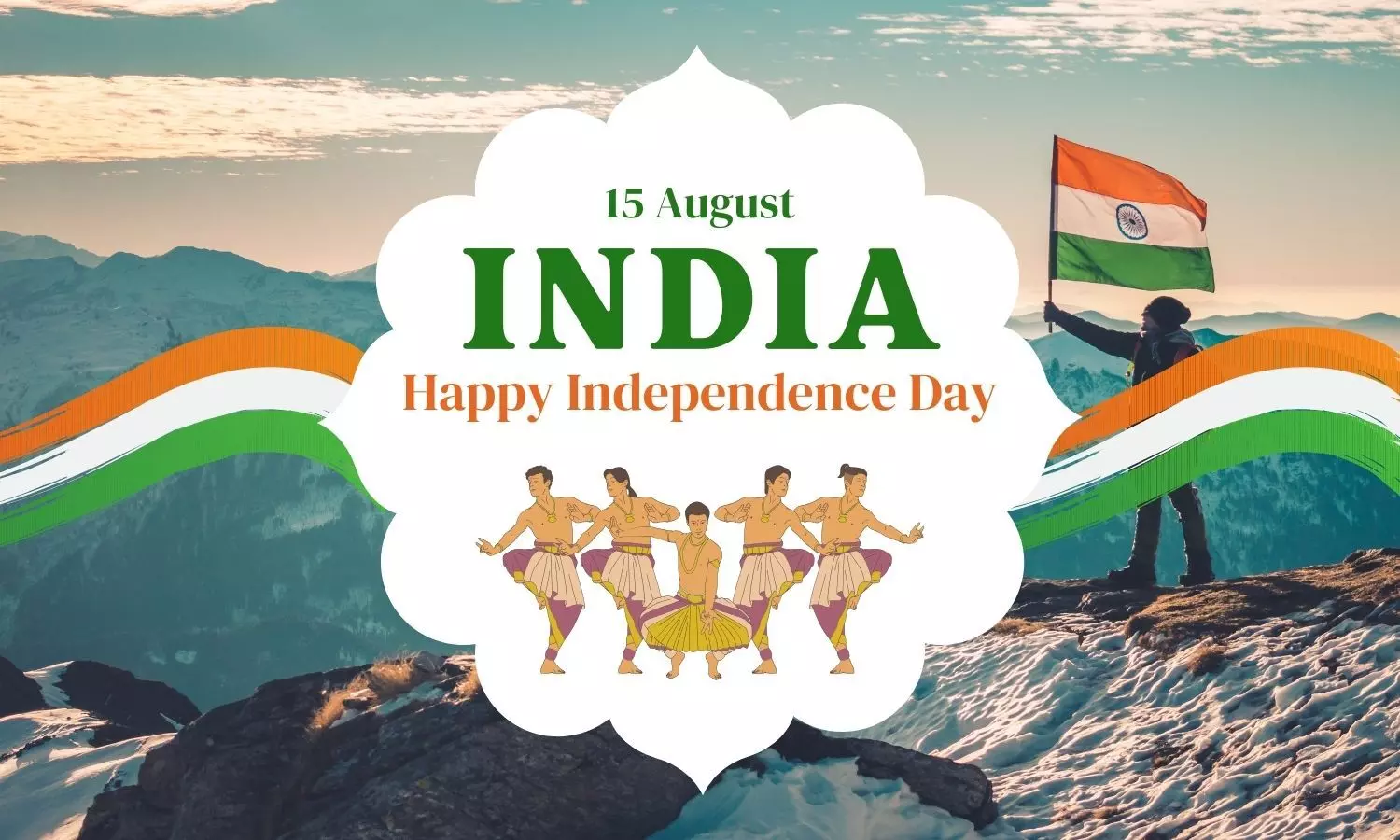India’s Independence Day: Reflecting on the Significance of August 15, 1947
Learn the significance of India's Independence Day, celebrated on August 15. Know about flag hoisting ceremonies, cultural programs, and tributes to freedom fighters.
India’s Independence Day: Reflecting on the Significance of August 15, 1947

On August 15, 1947, India achieved a monumental milestone in its history that is the end of British colonial rule and the dawn of a new era as an independent nation. This day is celebrated annually as Independence Day in India, marking the triumph of the Indian independence movement and the beginning of a new chapter in the country’s journey.
The Road to Independence
The Indian independence struggle was a protracted battle marked by numerous struggles, sacrifices, and significant milestones. The movement gained momentum with the leadership of Mahatma Gandhi, whose principles of nonviolent resistance and civil disobedience became the cornerstone of India's fight for freedom. Alongside Gandhi, leaders like Jawaharlal Nehru, Sardar Vallabhbhai Patel, and Dr. Rajendra Prasad played crucial roles in steering the nation towards independence.
By the early 1940s, the demand for independence had reached its peak, and negotiations with the British government became more intense. The partition of India, a controversial and challenging process, was negotiated between British authorities and Indian leaders. The final decision was made to divide the subcontinent into two separate nations—India and Pakistan.
The Historic Day: August 15, 1947
The actual day of independence arrived on August 15, 1947. As the clock struck midnight, marking the end of British rule and the beginning of India’s sovereignty, the country was abuzz with a mix of joy and solemnity. Jawaharlal Nehru, who had been appointed as the first Prime Minister of India, delivered his famous 'Tryst with Destiny' speech. This address was a profound reflection on the nation’s struggle and a hopeful vision for the future.
Nehru’s speech captured the essence of the moment, stating: “At the stroke of the midnight hour, when the world sleeps, India will awake to life and freedom.” This speech remains a defining moment in Indian history, symbolizing the fulfillment of a long-cherished dream and the start of a new era of self-governance.
Celebrating Independence: A National Tradition
The significance of Independence Day extends beyond the initial celebrations. It is a day of national pride and reflection, commemorating the sacrifices made by countless individuals in the fight for freedom. Each year, August 15th is marked with various activities and ceremonies across the country.
Flag Hoisting and Ceremonies
The central event of the Independence Day celebration is the flag hoisting ceremony. At the Red Fort in Delhi, the Prime Minister of India unfurls the national flag and delivers a speech to the nation. This tradition started with Nehru’s historic flag hoisting in 1947 and continues to be a vital part of the annual celebrations.
The ceremony at the Red Fort is accompanied by an elaborate parade that showcases India's military strength and cultural diversity. The parade includes displays of various armed forces, including the Army, Navy, and Air Force, reflecting the nation's commitment to maintaining peace and security.
Cultural Programs and Parades
Independence Day is also celebrated with cultural programs and parades across the country. Schools, colleges, and community organizations organize events that include dance performances, music, and theatrical presentations. These events highlight India's rich cultural heritage and the unity of its diverse population.
In addition to local events, major cities across India host parades featuring floats, traditional music, and performances that celebrate India's history and achievements. These parades are a vibrant expression of national pride and unity.
Tributes to Freedom Fighters
Another important aspect of the Independence Day celebration is paying tribute to the freedom fighters that made significant contributions to India's struggle for independence. Leaders like Sardar Vallabhbhai Patel, Mahatma Gandhi, and Subhas Chandra Bose are remembered for their courage and dedication.
Various programs and activities are organized to honor these heroes. Schools and institutions often conduct special assemblies or discussions about the contributions of these individuals to educate the younger generation about the sacrifices made for their freedom.
The Legacy of Independence Day
The significance of Independence Day lies not only in the celebration of freedom but also in the reflection on the progress made since 1947. It is a day to recognize the achievements of the nation and to set goals for future growth.
India's Freedom Struggle and Its Impact
The India freedom struggle was a complex and multifaceted movement that involved various strategies and ideologies. The nonviolent approach championed by Mahatma Gandhi, the political negotiations led by leaders like Nehru and Patel, and the role of numerous grassroots movements all played a part in achieving independence. Understanding this history is crucial for appreciating the significance of Independence Day and the value of freedom.
Indian Independence Day 2024 and Beyond
As we look forward to Indian Independence Day 2024, it is an opportunity to reflect on the progress India has made over the decades. From economic development and technological advancements to social and cultural achievements, the nation has come a long way since its independence.
Celebrating Independence Day in India is more than just commemorating a historic event; it is about embracing the values of democracy, unity, and progress. The day serves as a reminder of the country’s journey and the ongoing commitment to uphold the principles of freedom and equality.
Independence Day, observed annually on August 15, holds a special place in the hearts of every Indian. It marks a day of immense historical importance, celebrating the end of colonial rule and the birth of a sovereign nation. The events of August 15, 1947, continue to inspire pride and patriotism, making it a day of national reflection and celebration.

